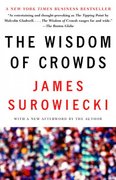Question
1.Find the right U.S. GDP data from the U.S. Bureau of Economic Analysis website (www.bea.gov) to fill in Table 1 below. Enter the U.S. 2019
1.Find the right U.S. GDP data from the U.S. Bureau of Economic Analysis website (www.bea.gov) to fill in Table 1 below. Enter the U.S. 2019 Annual GDP (in billions of dollars) for the total and all GDP components requested in the table below, then calculate each of the component's share of total GDP.
Hint: Go to www.bea.gov -> GDP -> Interactive Data -> GDP and the National Income ... -> Begin Using the Data. Find from Section 1, the right table requested in the Question. When you get to the table, use the Modify option to specify the years and the data frequency (quarterly vs annual) you want -> download.
Table 1. Gross Domestic Product (Billions of dollars)
2019 U.S. GDP ($Billions) Share (% of Total GDP)
Gross Domestic Product (GDP)
Personal Consumption Expenditures
Durable Goods
Nondurable Goods
Services
Gross Private Domestic Investment
Nonresidential
Residential
Net Exports of Goods & Services
Exports
Imports
Government Consumption Expenditures and Gross Investment
Federal
State and Local
2. Using the data available at www.bea.gov and applying the Compound Annual Percent Change formula, compute the annual growth rates of the following GDP components. Type in the formula you use & show your calculations. Report in your answer the values for "m" and "n."
a.Calculate the compound annual percent change in Real GDP (billions of (2012) chained dollars) from 2016 to 2019, using ANNUAL DATA.
b. Calculate the compound annual percent change in Real Personal Consumption Expenditures (billions of chained (2012) dollars) from the third quarter of 2017 to the fourth quarter of 2019.
c. Calculate the compound annual percent change in Real Gross Private Domestic Investment (billions of chained (2012) dollars) from the second quarter of 2017 to the first quarter of 2019.
3.Suppose, at the beginning of 2008 there were 200 million people in the labor force and the unemployment rate was 8%. During that year 5 million new people entered the labor force, but only 2 million got a job. During the same period, due to the recession, a total of 1 million people quit looking for a job. Compute the number of unemployed and unemployment rate (round it to 2 decimal points) at the end of 2008? (show your work).
4.Suppose the chart below represent the equilibrium condition in the US economy before being hit by the COVID-19 crisis. Using the AD-AS theory, show and EXPLAIN what would happen in the short-run after COVID-19 crisis hit the US economy. In the same chart, using the AS-AD theory, explain what would happen in the long run.
Assume other things constant. Do not introduce a new event (e.g. a new government policy) into your answer. Explain which curves shift and why. Label curves clearly and identify the new equilibrium in the short-run and the long-run.

Step by Step Solution
There are 3 Steps involved in it
Step: 1

Get Instant Access to Expert-Tailored Solutions
See step-by-step solutions with expert insights and AI powered tools for academic success
Step: 2

Step: 3

Ace Your Homework with AI
Get the answers you need in no time with our AI-driven, step-by-step assistance
Get Started


